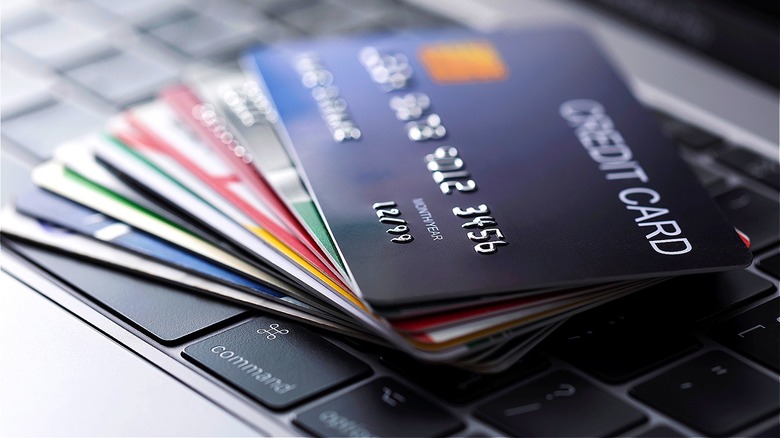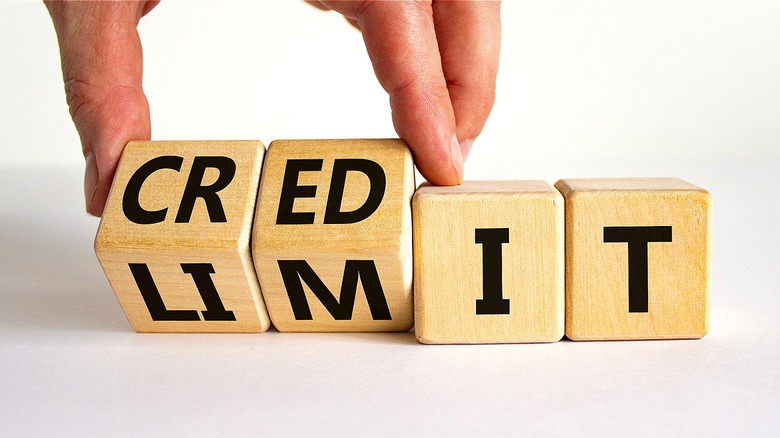This Is The Worst Time To Ask For A Credit Limit Increase
When asking for a credit limit increase, you want to avoid asking at the worst time(s) to increase your odds of getting approved. Asking your credit card issuer for an increase to your credit limit can be viewed as a risky proposition, even though you might have good intentions. One such example is wanting to increase your borrowing ability to lower your credit utilization ratio. For instance, $2000 charged to a credit card with a credit limit of $5,000 represents a 40% credit utilization ratio, while $2,000 charged against a $10,000 limit represents only 20%. Typically, credit bureaus like to see a credit utilization ratio of 30% or less for awarding top credit scores.
Alternatively, perhaps you're planning to make a large purchase, like home appliances or a dream vacation, and you want to score a pile of travel points or cash-back rewards. An overly conservative credit limit can put a crimp on those plans. While these are admirable reasons for requesting a bump in spending power, the credit card issuer isn't aware of any of that. It could view the request as a sign of financial distress or wanting to shift living expenses onto your credit card for lack of savings or income.
It sounds like a cliche, but typically, the best time to ask for additional credit is when you don't actually need it. If your income has increased since the credit card issuer last evaluated your credit limit, all the better. With all of that in mind, what are some of those worst times to request more spending power?
Don't send out distress signals
If you've recently opened up new lines of credit or already requested higher credit limits from other lenders, that's not going to send a vote of confidence to your issuer. Lenders could conclude that you're entering a financial emergency and need additional credit just to pay your bills. Whenever a new account is opened, the lender does what's called a "hard inquiry" to view and analyze your credit reports. Each hard inquiry reduces your credit score by only a small amount — typically three to five points — and your score will typically bounce back quickly. However, too many hard inquiries in a short period of time will represent a red flag to potential lenders.
Further, it might be obvious to some, but if your income has declined, that's also one of the worst times to ask about expanding your borrowing power. Even though a new position may be providing you with greater personal satisfaction, in the credit card issuer's view, a lower salary directly equals a diminished ability to repay. Finally, you likely shouldn't ask for a higher credit limit if you're credit score is still in recovery and hasn't improved — or may have even fallen — since the account was opened.
The worst they can do is say no
Even if conditions are less than perfect to request a credit limit increase, there's not much risk in asking anyway. The worst that can happen is that you'll get rejected and the credit card issuer will have made a hard inquiry on your credit report. True, that'll ding your credit score a few points, but it'll quickly recover (though the inquiry itself will stay on your report for two years).
In some cases, issuers may not even check your credit report if the requested increase is small and your payment history is good. Similarly, the issuer might not necessarily ask for proof of increased income, either. As much as modern society prefers doing tasks online, this may be a rare case when a phone call is better so you can discuss what may be a fluid situation with a customer service representative.
In a nutshell, try to time your credit limit request for when your financial snapshot will look strong to issuers. But most importantly, control your spending so you can pay your credit card bills in full every month. Interest rates for carrying a credit card balance are among the highest of any type of debt, easily exceeding 20%.


